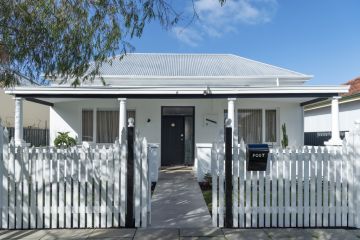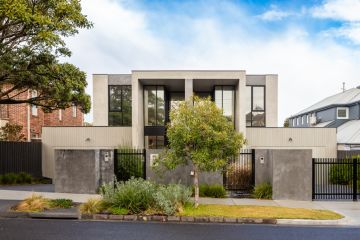How to set the perfect price guide for your home in Sydney's real estate market
Pricing your home for sale requires the art of finding a perfect balance.
A low price point will encourage a timely sale by providing value to prospective buyers, but you could walk away with a sum below your home’s true market value.
Listing higher than the market dictates could turn buyers away, and may result in the home lingering on the property shelf with little or no buyer interest.
A stigma is often associated with homes that have been on the market for a while. Buyers start to question why the home hasn’t sold, actively seeking out possible faults. Vendors who find themselves in this situation can often be led down the path of discounting in order to secure a sale.
Vendor discounting is the percentage between the original asking price and the end sale price of homes sold by private treaty.
This can become prevalent when market conditions begin to soften. Vendors misread the market change or perhaps choose to ignore it, and list their home expecting boom-time pricing, only to have to adjust their price guide later.
Data collected over a six-month period ending in January this year reveals where discounting is most prevalent in the Sydney area.
Buyers in the City and East negotiated the heftiest discounts, with houses sold by private treaty attracting an average discount of 7.37 per cent.
- Related: What to do when you get a pre-auction offer
- Related: Will a reno really boost your home’s value?
- Related: Renting vs selling your old family home
Substantial discounts were also experienced in the Lower North Shore (at 6.94 per cent), Northern Beaches (at 6.59 per cent), Inner West (at 6.41 per cent), the South (at 6.25 per cent) and the Upper North Shore (at 6.02 per cent).
All regions of Sydney saw vendor discounting to a degree. Houses in the North West were discounted by 5.95 per cent, in Canterbury Bankstown by 5.75 per cent and the South West by 5.11 per cent.
Vendors listed with more realistic price expectations in the Central Coast and the West, with houses on average discounted by 5 per cent and 4.81 per cent, respectively.
It is crucial to understand the factors that influence the price point of your home in order to set the right asking price from the start.
Due diligence should be conducted to help understand the market conditions before setting an asking price, as well as seeking advice from industry professionals.
For buyers looking to secure a discount on a home they think is overpriced, it is worth trying an offer, although a figure too low could put the seller off.
We recommend
We thought you might like
States
Capital Cities
Capital Cities - Rentals
Popular Areas
Allhomes
More







